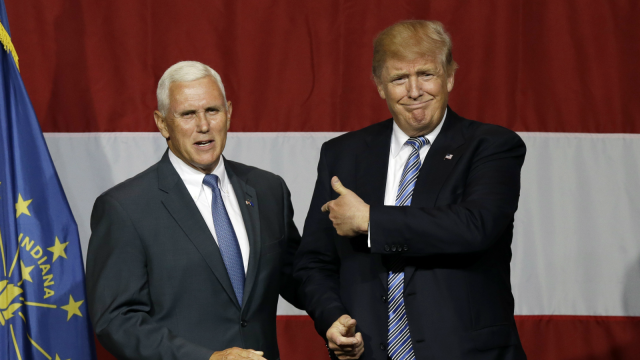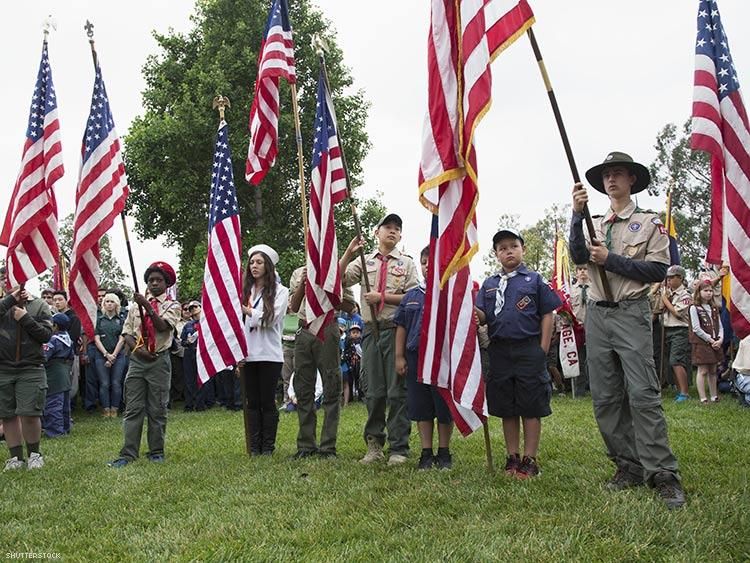Unconscionable: Trump-Pence’s Proposed Changes to Faith-Based Regulations Strip Away Key Protections

Post submitted by Michael Botticelli, Executive Director of the Grayken Center for Addiction Medicine, Former Director of National Drug Control Policy
Ever since Donald Trump and Mike Pence took their oaths of office, they have tried new, innovative ways to regulate compassion out of existence in our government. They’ve targeted individual groups – including the LGBTQ community, women, people of color and religious minorities – through legislation, regulation and rulemaking. Now, they’re attempting to rewrite the rules for faith-based organizations that do work with the federal government – targeting Americans’ access to lifesaving programs and care.
For over thirty years, I have worked to ensure that those with a substance use disorder receive the care that they need and deserve. Under President Obama, I served as the Director of the National Drug Control Policy at the White House. I come to this work not only with a public health background, but also as a gay man in long-term recovery from a substance use disorder. We are currently in one of the greatest health crises of our time. In 2018 alone over 68,000 people died of drug overdoses and over 48,000 of these deaths were linked to opioids. To stem this epidemic, access to high quality, evidence-based care is essential. But today only one in nine people living with addiction have access to the care they need. This care must be patient centered, and it must be fueled by compassion, kindness, and understanding. However, the proposed revisions to the Department’s faith-based regulations are anathema to this demand.
The current faith-based regulations include requirements that organizations provide clear notice to their clients that , detail their right to receive services free from discrimination and their right to decline to participate in a religious event or programming. They ensure that all beneficiaries are aware of their rights and that providers understand their obligations when participating in a federally funded program. These organizations are also directed to refer a beneficiary to another provider if that person objects to the organization’s religious character. The proposed revisions from the Trump-Pence administration would strip away these critical protections for beneficiaries and individuals interacting with these programs.
Every year the federal government provides millions of taxpayer dollars to programs designed to support treatment and recovery services.
For example, the Department of Health and Human Services funds non-profit organizations through the Basic Center Program operated by the Administration for Children and Families to meet the needs of youth facing homelessness and housing insecurity. Substance use disorder treatment is a foundational component of these programs with youth reporting that drug or alcohol use is one of their biggest challenges. For the 100,000 youth who access Basic Center Program services every year connection to mental health and substance use care can be life-changing. These youth must be able to trust that the care they receive either by the center or through a referral will be welcoming, culturally competent, and client-centered. However, the proposed revisions to this regulation strip away critical protections for the youth served by these programs.
People living with addiction too often struggle with the weight of stigma and with the belief that they are less deserving of basic care. People who live at the intersection of multiple marginalized identities feel this weight even more acutely, including by those who are members of the LGBTQ community. Due to systemic discrimination, stigma, and harassment, the LGBTQ community faces increased risk for substance abuse. According to the 2018 National Survey on Drug Use and Health, LGB people are more than twice more likely to have a substance use disorder (SUD) than the general population. The 2015 National Health Interview Survey showed lesbians and gays are 10% more likely to have had a heavy drinking day within the past year than the general population, and bisexual people are at an even greater risk, being 23.8% more likely.
Research has shown that programs that are explicitly affirming of LGBTQ people result in better long-term outcomes. Gay and bisexual men in specialized programs reported recovery 18% more than those in non-specialized programs. Recovery programs that emphasize a certain religious belief or practice that is not LGBTQ affirming are ineffective and can be damaging. An LGBTQ-identified individual faced with participating in such a program may choose to forfeit care altogether, which can have significant and dire consequences including death. Under the current regulations, a beneficiary would be informed of their rights and could seek a referral to a secular program. Under this proposed change, they wouldn’t
Notice requirements are a low cost, uniform mechanism to ensure that beneficiaries understand their rights when they matter the most. Through these proposed revisions, the Department prioritizes the rights of organizations and providers over the lives of people seeking the treatment that they have been trusted to provide.
To be frank, these proposed rules could degrade the care that so many Americans need. It would allow discriminatory programs to flourish, and leave those seeking care with fewer options. It’s unconscionable, and we shouldn’t stand for it.
www.hrc.org/blog/unconscionable-trump-pences-proposed-changes-to-faith-based-regulations?utm_source=rss&utm_medium=rss-feed









